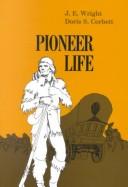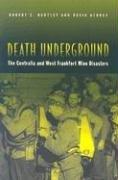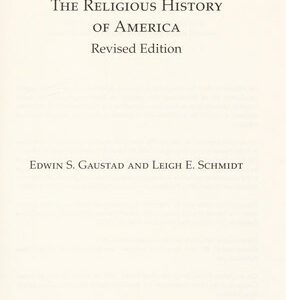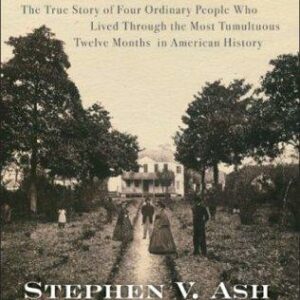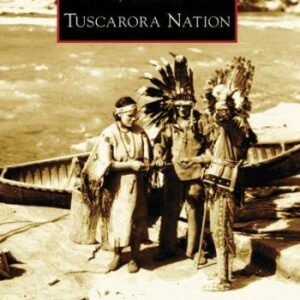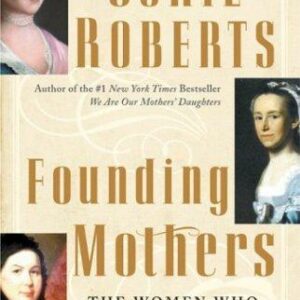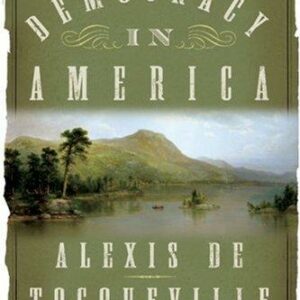James Madison
$21.00
| Title | Range | Discount |
|---|---|---|
| Trade Discount | 5 + | 25% |
- Description
- Additional information
Description
A major new biography of the fourth U.S. president, from New York Times–bestselling author Lynne Cheney
James Madison was a true genius of the early republic, the leader who did more than any other to create the nation we know today. This majestic new biography tells his story.
Outwardly reserved, Madison was the intellectual driving force behind the Constitution. His visionary political philosophy—eloquently presented in the Federalist Papers—was a crucial factor behind the Constitution’s ratification, and his political savvy was of major importance in getting the new government underway. As secretary of state under Thomas Jefferson, he managed the Louisiana Purchase, doubling the size of the United States. As president, Madison led the country in its first war under the Constitution, the War of 1812. Without precedent to guide him, he would demonstrate that a republic could defend its honor and independence while remaining true to its young constitution.Praise for James Madison: A Life Reconsidered
“With this compelling, elegant, original biography, Lynne Cheney brings the great, elusive James Madison back to life, reminding us of how powerfully this brilliant founder’s political and intellectual leadership has shaped the course of American history. In this era in which Madison is too often eclipsed by more histrionic founders, Cheney shows us his crucial, fascinating relationships with Dolley, Thomas Jefferson and an all-star cast, and lets us witness the growth of a world-changing political philosopher. Her book demonstrates why Madison deserves to stand near the center of our early American firmament.”
—Michael Beschloss, author of The Conquerors and Presidential Courage
“Lucidly written . . . this is probably the best single-volume bio of Madison that we now have.”
—Gordon Wood, New York Times Book Review
“The book is a lovingly researched tribute to an often-underestimated man. It does not explicitly refer to modern controversies. But present-day politics intrudes.”
—The Economist
“[A] meticulously researched, richly detailed look at the life and times of Madison. Former Second Lady Cheney fleshes out the achievements and struggles of this American founding father. . . . [A]uthoritative, conversational, certainly confident in its analysis.”
—Publishers Weekly (starred review)
“James Madison did as much to put his stamp on the nation as any of the founders, yet too rarely is he given his due in the pantheon of America’s statesman. In this stunning, brilliant work, Lynne Cheney rectifies this glaring oversight, and brings Madison to life as never before. Written with subtlety and grace, the book is as groundbreaking as it is fresh, as enthralling as it is compulsively readable. It is nothing short of a masterpiece that deserves to be in the bookshelf of every history buff!”
—Jay Winik, author of April 1865 and The Great Upheaval
“A nuanced study on its own and a thoughtful presentation by one of today’s prominent public intellectuals.”
—Library Journal
“Cheney might have written a book that made Madison a prop in today’s political battles. She did not, which is greatly to her credit and true to the life of the man.”
—Washington Post
“After more than twenty-five years working on the Madison Papers, it’s not often that I read something about him that is fresh and engaging, and discovers new aspects of his life and character. Cheney’s exploration of Madison’s health issues, not only as a young man, but throughout his career, is imaginative and groundbreaking. Her writing is both fluid and polished; the tone is measured and judicious; there isn’t a strident note in the whole book. And, an added plus, her treatment of Madison as a political actor is informed by a sophisticated knowledge of politics, without in any way being presentist.”
—David B. Mattern, Research Professor and Senior Associate Editor, Papers of James Madison, University of Virginia
“On the whole [Cheney] offers a lucid, well-paced, wonderfully written, and authoritative history. Very well worth your time.”
—National Review
“This is the James Madison we always should have known about. Thanks to Lynne Cheney’s well-researched book, it’s the James Madison we will now always know.”
—The Washington Times
“The Constitution remains Madison’s greatest legacy. Cheney’s detailed biography helps renew appreciation for the man behind it.”
—Pittsburgh Tribune Review
“Lynne Cheney has written what may be the most authoritative and comprehensive book ever on the life of Founding Father and President James Madison. It offers a fascinating perspective into how brilliant Madison truly was.”
—Intellectual ConservativeLYNNE CHENEY is the author and coauthor of twelve books, including six bestsellers about American history for children. The wife of former vice president Dick Cheney, she lives in McLean, Virginia, and Wilson, Wyoming.
PROLOGUE
PHILADELPHIA, MAY 5, 1787
He hurried along Market Street, his high-crowned hat offering scant protection against the rain. Had he passed this way earlier in the day, shoppers would have slowed his pace, drawn by the covered market that stretched for blocks down the center of the street. Now, with the afternoon wearing on and a thunderstorm over the city, only a few bargain hunters remained. Farmers who had brought produce in from the Pennsylvania countryside were scrambling into their wagons for what promised to be a muddy trek home.1
Visitors to Philadelphia found the market a wonder, but the residents of Market Street were not fond of it. They repeatedly—and futilely—tried to halt its expansion, arguing that the crowds did real estate values no good. Better to have the more peaceful setting enjoyed by residents farther west, the direction that the hurrying figure was headed. He crossed Fifth Street, its wet cobblestones glistening underfoot, then with springing step went up the stairs and entered the door of the ample brick building on the corner. It was the comfortable residence of Mary House, an elderly widow who lived there with her son, Samuel, her daughter, Eliza Trist, and Mrs. Trist’s son, Hore Browse. It was also one of Philadelphia’s most highly regarded boardinghouses, a home away from home for many of America’s political notables.2
Thirty-six-year-old James Madison, shaking off rain inside the front door, was one of Mrs. House’s regulars. He had begun staying with her in 1780, when he first became a member of the Continental Congress, and now, after a day-and-a-half ride by stagecoach from New York, he was at her lodgings again, this time to attend a convention scheduled for the second Monday in May. Over the past seven years, Madison had spent more time at Mrs. House’s than at his Virginia home, and he had come to regard her family as his family. He was particularly fond of Mrs. Trist, a woman of spirit and wit. In 1784 she had traveled by flatboat down the Mississippi to Louisiana to be with her husband, Nicholas, a former British officer. She recorded flora and fauna along the way for Thomas Jefferson, another Virginian who stayed at the Market Street lodgings, unaware as she was taking notes that she had become a widow. Between the last letter she received from Nicholas and the beginning of her trip downriver, he had died. Jefferson and Madison, learning of Nicholas’s fate, wrote to each other of their concern for Mrs. Trist. With the Spanish having closed the Mississippi to American navigation, how would she get back to Philadelphia? But she found a way, sailing first to Jamaica and from there back home.3
At no more than five feet six inches tall, Madison was not physically imposing in the way Jefferson was, or the great Washington, whom Mrs. Trist and her mother were expecting to arrive in little over a week. But he was fit and well proportioned, and as he gazed out at the world from deep-set light blue eyes, he had a presence about him, “a habit of self-possession,” Jefferson called it, “which placed at ready command the rich resources of his luminous and discriminating mind.”4
Madison did not leap forward to meet strangers or try to dominate in conversation. He was naturally reserved and perhaps also influenced by a lesson of his youth. From the Spectator, a London periodical that he favored in his early years, he had learned that modesty becomes a man. Famed Spectator author Joseph Addison described it as “a guard to virtue” and noted that it “sets off every great talent which a man can be possessed of.”5
By now Madison also understood that reticence had its political uses. It was wise to avoid strong statements while circumstances were still unfolding. It was often advantageous to put forth proposals anonymously and thus avoid alienating allies who might not agree. If in avoiding center stage Madison missed some of the praise, he also avoided some of the criticism, thus saving his reputation for a future day.
Madison dressed plainly, as befitted a man who did not want to be conspicuous. Eventually, he would wear only black. His public speaking was as unadorned as his dress. His words and ideas came forth with coolness and clarity, unobscured by drama. Although no one thought of him as an orator for the ages, those who paid attention understood that when he spoke he was enormously effective. “If [eloquence] includes persuasion by convincing,” his fellow Virginian John Marshall wrote, “Mr. Madison was the most eloquent man I ever heard.”6
Thomas Jefferson believed that Madison’s reserve had held him back when he first began his public career, and another friend, Samuel Stanhope Smith, told him that his early achievements had come “in spite of all your modesty.” But the reputation that Madison had acquired by the time he arrived in Philadelphia in May 1787 suggests that his manner had been little hindrance. “Every person seems to acknowledge his greatness,” commented William Pierce, who, like Madison, was a delegate to the Philadelphia convention. Indeed, now that Madison’s intellect and political skill were so widely recognized, his demeanor seemed to burnish his reputation. Despite all his renown, he remained, in Pierce’s words, “a gentleman of great modesty, with a remarkable sweet temper.”7
• • •
ALTHOUGH SHE WAS the same age as Congressman Madison, Eliza Trist sometimes assumed a motherly attitude toward him. She knew from Jefferson that much as he had accomplished, he was likely to achieve still more, and she worried about the “torrent of abuse” he would have to bear as he rose higher. “He has a soul replete with gentleness, humanity, and every social virtue,” she wrote to Jefferson, “and yet I am certain that some wretch or other will write against him. . . . It will hurt his feelings and injure his health, take my word.” Mrs. Trist almost certainly knew that in addition to the common ailments of the day—dysentery, fevers, influenza—Madison suffered from “sudden attacks” that he described as “somewhat resembling epilepsy, and suspending the intellectual functions.” Historians of a later time would dismiss these attacks. “Epileptoid hysteria,” his most influential biographer would call them.8 But Madison’s description fits today’s understanding of epilepsy. His sudden attacks might well have been complex partial seizures, which leave the affected person conscious but with his or her comprehension and ability to communicate impaired—the “intellectual functions” suspended, one might reasonably say. In Madison’s day such attacks were not generally regarded as epileptic, which may account for the qualifiers in his description. “Epilepsy” was a term reserved for convulsive seizures. But Madison saw a relationship between his attacks and those in which people fell to the ground and convulsed, an understanding that put him in advance of his time.
• • •
MADISON DID NOT MAKE a show of himself, but neither did he lack vanity. His jacket and breeches were finely made, his stockings usually silk. He powdered his hair and combed it forward to a point in order to cover a receding hairline.9 And unassuming though he might seem, he did not hesitate to take on enormous projects. Standing in Mrs. House’s parlor, his clothes still damp from the rain, he had a scheme in mind about as grand as could be imagined. He intended to use the upcoming convention to create a nation out of the thirteen individual states that four years before had thrown off the rule of Great Britain—and not just any nation, but one such as never had been seen before.
He envisioned a vast republic where the people were sovereign and their fundamental rights respected as nowhere else on earth. Such a republic had been judged impossible by influential thinkers of the age. Without monarchical power at the center, they believed, a country of great size would come apart, riven by different interests and ambitions. Only in a small republic, where citizens held views and virtues in common, could there be stability. Madison perceived that this idea was based on a fiction. No society, not even the smallest, was truly homogeneous. Factions, or interest groups, were endemic to the human race, and the challenge was making sure that majority rule, which was at the heart of republican government, did not become an instrument for one faction to suppress others. The way to do this was to make the republic large enough so that no single interest dominated. “Extend the sphere,” Madison would soon explain, “and you take in a greater variety of parties and interests; you make it less probable that a majority of the whole will have a common motive to invade the rights of other citizens.”10
This insight—brilliant and prophetic—not only provided a rationale for the union of states that would be created by the Constitution; it would transform political thought, taking self-government from an impossible realm, in which all citizens virtuously suppressed their self-interest in the name of the common good, and moving it into reality, where interests competed with and checked one another.11 A republic was no longer a distant ideal but something to which people around the world could aspire. Bringing the idea of the extended republic to bear at a time when a great nation was to be built was Madison’s first grand act of creative genius—but by no means his last. Over the next five years, he, more than any other individual, would be responsible for creating the United States of America in the form we know it today.
Madison’s time of extraordinary accomplishment came after years of intense focus, deep concentration, and nearly obsessive effort, behavior that describes most lives of genius, from Sir Isaac Newton’s to Mozart’s to Einstein’s.12 Some who have achieved greatly have had families that encouraged their passions, and Madison was among these fortunate. His father had sent him to fine schools. He had for years freed him from the necessity of earning a living, thus giving him time to study and practice the art of politics. Madison was also lucky to live in an era that demanded the skills he honed while at the same time inspiring the intensity with which he honed them. For a young man drawn to the subject of power and the possibilities of nation building, it is hard to imagine a more thrilling time to come of age than in the years leading up to the American Revolution.
He brought to the cause a fervent commitment to religious freedom, perhaps because he had experienced the misery of being told what he had to believe. In the eighteenth century, people suffering from epilepsy—or sudden attacks resembling it—had a double burden, the disorder itself and the religious view, widely held and fiercely defended, that sufferers were unclean, sinful, even possessed by demons. In his young manhood, when the attacks began, Madison had gone through a period of deep despondency, certain that he would die and worried about his soul. He eventually emerged from the gloom, and when he did, he was on fire with the idea that no one should have to accept ideas that seemed wrong to him. A man’s conscience was his own, not the property of church or state.
He acted on this commitment when he was just twenty-two and saw Anglicans in his native Virginia misusing the authority of the state to persecute Baptists. He not only championed the Baptists’ cause with a passion that broke through his usual reserve; he also began to explore how society could be organized to protect rights of conscience. More than a year before the Revolutionary War, he was, astonishingly, inquiring into ways “the constitution of [a] country” could foster freedom of belief.13 Even in his maiden venture into politics, he had a significant contribution to make, insisting that the new state of Virginia not merely tolerate religious differences but view each individual’s conviction as a fundamental right.
Madison plunged into politics again and again. While serving in the Continental Congress, he became so immersed that he did not return home for nearly four years. Most recently he had been a member of the Virginia legislature, where he had seen to the passage of a law that Thomas Jefferson had written, the Virginia Statute for Religious Freedom. The enacting clauses of this legislation, he exulted to Jefferson, had “extinguished forever the ambitious hope of making laws for the human mind.” He had also been delving deep into history, poring over hundreds of volumes that Jefferson sent him from Paris, a “literary cargo” concerning laws and constitutions.14 He was determined to find out how past unions of states had fared and, combining history with his own experience, to understand why the United States, under its current governing document, the Articles of Confederation, was failing to live up to its abundant promise.
By the time of the Philadelphia convention, Madison was the political equivalent of Mozart in the late 1770s, who after years of writing music was about to create his greatest works. He was Einstein, who after years of studying with “holy zeal” was on the verge of his annus mirabilis, the miracle year of 1905, in which he would establish the basis of the theory of relativity and quantum physics. As Madison climbed the narrow stairs in Mrs. House’s boardinghouse and headed for his room, he was more knowledgeable and better practiced in the theories and realities of representative government than anyone in the country or even the world. And he was about to do what geniuses do: change forever the way people think.15
• • •
AT HIS DESK in the waning light of that rainy afternoon, Madison wrote a hurried letter to William Irvine, a Pennsylvanian who was one of his allies, and then he almost certainly turned his thoughts to the upcoming gathering. He had spent months working to ensure the convention’s success: penning legislation to throw Virginia’s support behind it, persuading Washington to attend, taking steps to see that the Confederation Congress didn’t hinder its proceedings. Now he worked on the convention’s agenda, not because anyone had asked him to, but because he understood that the surest path to the governmental framework he envisioned lay in providing the program that would guide discussion. He also knew that having others of influence lined up behind his plan would give it greater force. One of his chief reasons for arriving early in Philadelphia—he was the first out-of-state delegate there—was the chance it gave him to meet with others as they arrived and convince them of the benefits of his proposal.
At the convention, he would be one of the chief participants in debate while at the same time keeping notes that would create a historical record of immeasurable worth. The Constitution that the delegates finally agreed upon would not be everything he had wanted, but he quickly concluded it was more than anyone could have hoped, and with John Jay and Alexander Hamilton he defended it in The Federalist, a series of essays that has become a classic of political thought. Madison would be crucial to securing the ratification of the Constitution in Virginia, the biggest and most powerful state, and he would face down Patrick Henry, the most famed orator of the day, in order to do so.
Madison would have a greater hand than anyone at setting the government based on the Constitution in motion, including drafting a bill of rights and getting the necessary amendments through Congress. He would lead in the founding of the first political party, once again upending conventional wisdom. So frowned upon was the idea of partisanship that Jefferson once declared, “If I could not go to heaven but with a party, I would not go there at all.” But Madison defended parties as “natural to most political societies.”16 They were a legitimate vehicle for free people to use to advance their views and interests.
Madison’s genius would ripen into a wisdom that served him well for the eight years he was Jefferson’s secretary of state and for his two terms as president. Through the perilous losses and thrilling victories of the War of 1812, he was as steady a commander in chief as the United States has known. Even after the British burned the nation’s capital, he remained calm, resolute, and devoted to founding principles, refusing to heed calls to silence Americans opposed to the war. His contemporaries, while acknowledging that the course of the war with Great Britain was not always smooth, praised his success. “Notwithstand[ing] a thousand faults and blunders,” John Adams wrote, Madison’s administration had “acquired more glory and established more union than all his three predecessors, Washington, Adams, and Jefferson, put together.”17 Without precedent to guide him, James Madison would demonstrate that a republic could defend its honor and independence—and remain a republic still.
• • •
PRAISE WOULD FOLLOW MADISON to the grave and beyond. Nine years after his death, Charles Jared Ingersoll would say that “no mind has stamped more of its impressions on American institutions than Madison’s.” But eventually his fine reputation would suffer, and he is popularly regarded today—when remembered at all—less as a bold thinker and superb politician than as a shy and sickly scholar, someone hardly suited for the demands of daily life, much less the rough-and-tumble world of politicking.18 The reasons for this transformed image are many, including Henry Adams’s late-nineteenth-century history of Madison’s administration, in which the fourth president is presented much as his worst enemies liked to describe him. Misunderstandings about Madison’s health enter in—as does our twenty-first-century inability to conceive of modesty and reserve as having any compatibility with politics.
• • •
IT IS A PROMISING TIME to clear away misconceptions about Madison, brush off cobwebs that have accumulated around his achievements, and seek a deeper understanding of the man who did more than any other to conceive and establish the nation we know. His home at Montpelier, long burdened with massive twentieth-century additions, has now been beautifully restored. One can visit the dramatic red drawing room where the Madisons relaxed with guests; the dining room where they entertained, its walls decorated with historic prints; the library, the center of Madison’s intellectual life, where he kept some of his four thousand pamphlets and books.
Pathfinding authors, particularly biographers Irving Brant and Ralph Ketcham, have charted the way for researchers into Madison’s life, as Catherine Allgor has done for Mrs. Madison’s. J. C. A. Stagg and his team at the University of Virginia—particularly senior associate editor David B. Mattern, as well as Mary Hackett and Angela Kreider—have drawn together thirty-five volumes of Madison’s papers in beautifully edited and annotated form and made them available online, providing an ease of access that past researchers could only have dreamed of.19 Holly C. Shulman, also at the University of Virginia, has led the project to get Dolley Madison’s papers edited and online, together with groundbreaking essays that provide invaluable context.
The thirty-five volumes of James Madison’s papers alone run to more than twenty thousand pages, and writing about him requires exploring much more, including the voluminous papers of the leaders with whom his life intersected, figures such as George Washington, John Adams, Thomas Jefferson, and Alexander Hamilton. Reconsidering James Madison’s life has been for me a project of many years, but what amazing company I have kept. I particularly treasure the time spent with that determined man in the high-crowned hat, rushing through the rain. He was on his way to creating a nation—and changing the world.
US
Additional information
| Dimensions | 1.3100 × 5.5000 × 8.4100 in |
|---|---|
| Imprint | |
| ISBN-13 | |
| ISBN-10 | |
| Author | |
| Audience | |
| BISAC | |
| Subjects | political books, james madison biography, madison, first fathers day gifts, federalist papers, james madison, alexander hamilton, american revolution books, revolutionary war books, first ladies, biographies and memoirs, history buff gifts, gifts for history buffs, fathers day gifts, Revolutionary War, presidents, history, american revolution, HIS036000, us history, biographies, history books, president, fathers day, founding fathers, biography, john adams, benjamin franklin, thomas jefferson, american history, HIS036030, politics |


